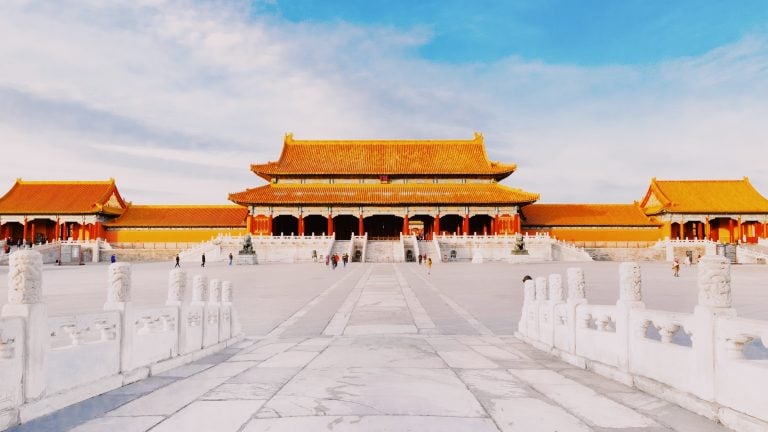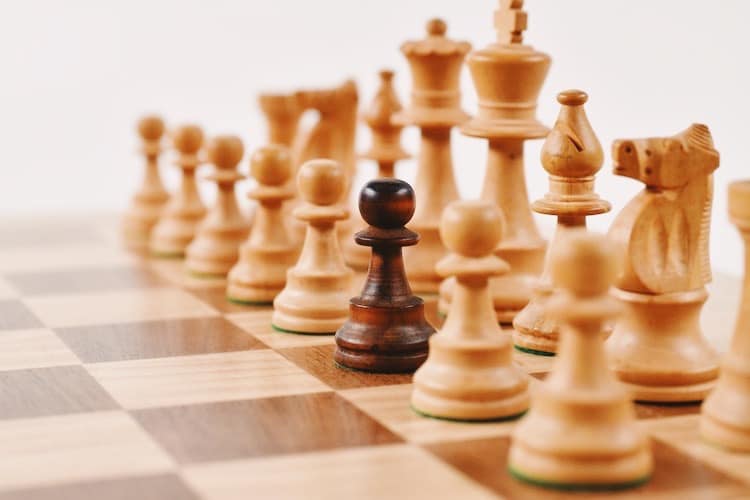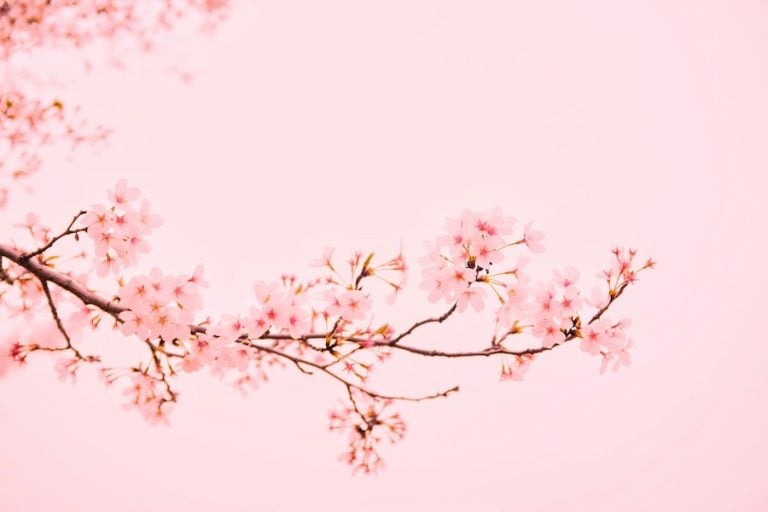The Moon (Tai Yin) – The Mother Star

Five Elements:
yin water
Vital Qi:
abundance
Chinese Name:
tai yin 太陰
Strength:
maternal, caring, thoughtful, affectionate, detail-oriented, filially dutiful
Weakness:
self-indulgence, jealous, emotional, tardy,
Also Known as:
controller of property, peach blossom star, wealth star, mother star
The Symbolism of The Moon (Tai Yin)
In Zi Wei Dou Shu, while the Sun represents the father, the Moon embodies the mother and femininity. The Sun radiates strong and direct heat, whereas the Moon’s glow is soft and gentle—much like a mother’s tenderness and grace.
Unlike the Sun star, which signifies social status and the masculine principle, the Moon reflects the essence of women, society’s perception of them, and, by extension, the family they nurture.
If the Sun represents the external pursuit of power and recognition, the Moon illustrates the role of women in managing and accumulating wealth within the family. Traditionally, the Sun in the Self palace was associated with the concept of “overcoming the father” (剋父), and similarly, the Moon was linked to “overcoming the mother” (剋母). However, this concept primarily stems from personality traits that may have led to struggles for dominance within the household. While this idea may have held significance in the past, in modern society, it is no longer a prominent concern.
The Feminine Power of The Moon
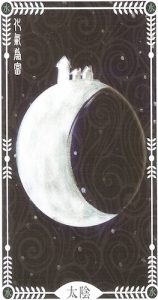
The Moon star embodies all aspects of femininity—gentleness, delicacy, deep contemplation, a love for enjoyment, romance, and even jealousy. It is also associated with a slower, more measured approach to action. However, beyond these well-known traits, people often overlook its fundamental role as the “mother star,” primarily representing the essence of motherhood.
As a symbol of nurturing and protection, the Moon exhibits a quiet yet unwavering strength. Unlike the assertive and dominant nature of patriarchal traits, maternal energy manifests in a more subtle but persistent form of determination. While it may not always express its intentions outright, it remains steadfast in its ability to influence and guide.
Because of this, similar to the Sun, the Moon is generally not well-suited for the forceful transformations associated with empowerment. When pushed in that direction, it can manifest as excessive stubbornness, overbearing tendencies, or an overly meticulous nature.
The Moon and Its Relationship with Housing
The Moon star, also known as the Controller of Property, is often associated with housing, but this connection arises from the deeper symbolism of motherhood—representing “home” and the accumulation of wealth. Traditionally, mothers were responsible for managing finances and saving money, reinforcing the idea that wealth is meant to provide security and stability for the family. However, the true essence of the Moon’s link to housing is not about physical property but rather the broader concept of “home”—a place of refuge, care, and continuity.
In modern times, a home is no longer defined solely by a physical house. Instead, it extends to all financial tools that contribute to the accumulation and stability of wealth. If buying a house were solely linked to the Moon as a means of wealth accumulation, then what about the land it stands on? Furthermore, real estate markets vary significantly across cultures. If the Moon were strictly tied to property wealth, its meaning would not hold consistently across different economic landscapes.
To truly understand the Moon’s significance, it is essential to return to its core symbolism—a steady, nurturing force that safeguards financial well-being, ensuring long-term security rather than just material ownership.
The Brightness of The Moon in Zi Wei Dou Shu
Just like in nature, the Moon in Zi Wei Dou Shu does not generate its own light—it reflects the radiance of the Sun.
Similar to the Sun star, the Moon thrives in a bright position, but its brightness also depends on the placement of the Sun within the chart. Since the Moon’s light is derived from the Sun, if the Sun is in shadow, then the Moon’s brightness is merely an illusion.
When the Moon is positioned in darkness, it loses its nurturing and positive qualities, diminishing the maternal essence it represents. This highlights the importance of understanding both the Sun and Moon together in a chart, as their interplay directly influences the Moon’s true expression and strength.
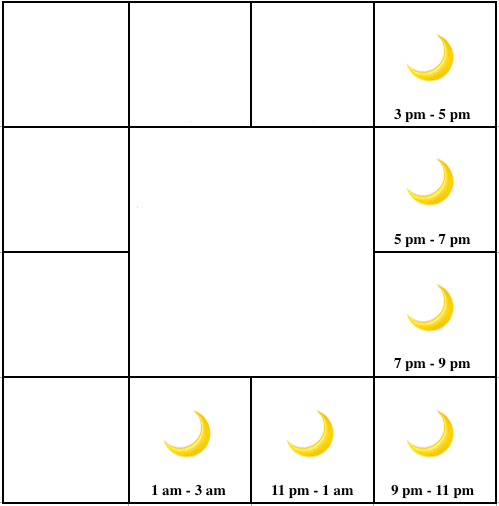
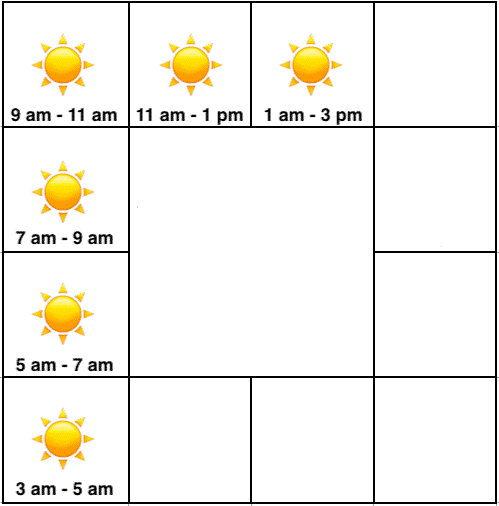
The Moon (Tai Yin) in Twelve Palaces
1. Self Palace
Individuals with the Moon in the Self Palace appear composed, elegant, and considerate. They often have a gentle aura, but beneath the softness lies a sharp intellect and a strategic mind. Their decision-making is rarely impulsive—they prefer to calculate carefully before acting.
For men, this placement often softens masculine traits, resulting in a thoughtful but less dominant personality. For women, it enhances charm and grace, often accompanied by a clear set of emotional boundaries. This person may be more attuned to family matters than public success. Fame isn’t the goal—emotional security is.
2. Siblings Palace
The Moon in the Siblings Palace often signifies a strong bond with the mother and suggests being well cared for in childhood. In female charts, it can represent nurturing sisters who feel like second mothers. In male charts, it may reflect the native’s caregiving role toward siblings or highlight the maternal influence more than actual brothers. For insights into sibling dynamics, it’s more reliable to observe fate cycles or annual charts.
3. Spouse Palace
For men, traditional texts praise this as an auspicious placement, suggesting a gentle, family-oriented spouse. But such readings can be overly simplistic. These men often idealize femininity and may be drawn to women who are delicate, refined, or, conversely, controlling if the Moon is afflicted.
For women, they tend to attract emotionally sensitive or overthinking partners—romantic but indecisive. If afflicted by ominous star and hindrance transformation, or paired with other Peach Blossom stars, this placement can manifest as emotional entanglement or love triangles.
4. Children Palace
The Moon in this palace is often interpreted as a sign of filial and affectionate children. It reflects a close emotional bond between parent and child. When the Moon is in a radiant position, its nurturing nature shines, highlighting maternal warmth, emotional sensitivity, and a deep commitment to caring for family.
5. Wealth Palace
As a star of hidden wealth, the Moon here leans toward accumulating rather than aggressively acquiring money. Individuals with this placement have a strong instinct for financial preservation and stability. They’re less likely to take high risks but more likely to build quiet reserves over time, like a mother stocking the pantry.
They value necessities, spending on food, shelter, and emotional comfort rather than flashy luxuries. If paired with Abundance star or carries an enrichment transformation, this star can bring substantial long-term gains.
6. Health Palace
The Moon governs reproductive and urinary systems. For women, this placement often signals gynecological sensitivities. For all genders, it suggests a need to guard emotional and hormonal balance. Emotional stress can manifest physically through fatigue, fluid retention, or urinary issues. If afflicted, there may be a tendency toward overthinking, which impacts sleep and digestion.
7. Travel Palace
The Moon in this palace suggests someone who appears gentle and emotionally perceptive, shaped by a private world of sensitivity and protectiveness. These qualities create a Peach Blossom charm. Because the Travel Palace affects the Self Palace, how these traits show up depends on what star sits opposite, influencing how others perceive the person.
8. Friends Palace
The Moon in the Friends Palace suggests a natural tendency to care for and support friends. This maternal quality makes others feel safe but can lead to emotional overextension. If afflicted by ominous stars or a hindrance transformation, and combined with other Peach Blossom stars, it may attract emotionally ambiguous friendships or ongoing romantic entanglements.
9. Career Palace
This placement is not about power—it’s about emotional fulfillment. the Moon here suggests someone who seeks aesthetics over hierarchy, comfort over conquest, and harmony over hustle. They do best in careers that allow them to care, create beauty, or provide emotional support, such as interior design, hospitality, counseling, or wellness. While success is possible, it’s not always the goal. Emotional congruence is.
10. Property Palace
The Moon is most comfortable in this palace, where its nurturing essence fully manifests. Individuals with this placement tend to seek out cozy, tranquil spaces often near water—such as ponds, pools, or secluded alleys. They are especially drawn to dim lighting, soft textures, and environments that offer emotional safety. Their homes often sit close to places tied to daily care and nourishment, like local markets or neighborhood eateries, echoing the Moon’s maternal nature.
11. Karma Palace
In the Karma Palace, the Moon points to emotional depth and a financial path often tied to the opposite sex or pleasure-related industries like food, travel, and lifestyle. This placement suggests a poetic nature and strong inner life. When afflicted, it may lead to overthinking or late-life worry. In rare cases—especially with the Phantom Star (陰煞) and the Advisor—it can indicate spiritual sensitivity.
When combined with Peach Blossom stars and afflicted by ominous stars or hindrance transformation, the Moon may indicate careers involving emotional or sensual exchange with the opposite sex. These roles can range from caregiving to emotionally charged performances, shaped by environment and fate.
12. Parents Palace
The Moon often symbolizes the mother in Zi Wei Dou Shu. In this palace, there’s often a strong emotional attachment to the mother. If afflicted, the relationship may be strained, characterized by overprotectiveness, emotional guilt, or unspoken expectations. Conversely, when unafflicted, this placement suggests nurturing parents who provide emotional support and security.
The Moon (Tai Yin) in Zi Wei Dou Shu is a powerful symbol of femininity, wealth, and security. Its influence extends beyond mere romanticism or emotional sensitivity—it is a force that nurtures and protects, ensuring stability for oneself and loved ones. Whether in career, wealth, or relationships, The Moon’s impact lies in its quiet persistence, shaping destinies through its steady, unwavering energy.
Subscribe to Newsletter
I share insights on Zi Wei Dou Shu, reflections on life, and practical guidance to help you navigate your journey.—subscribe and stay inspired!
Unlock the Secret of Destiny
Follow me on Facebook for fortune insights, life coaching, and wisdom from Zi Wei Dou Shu!
